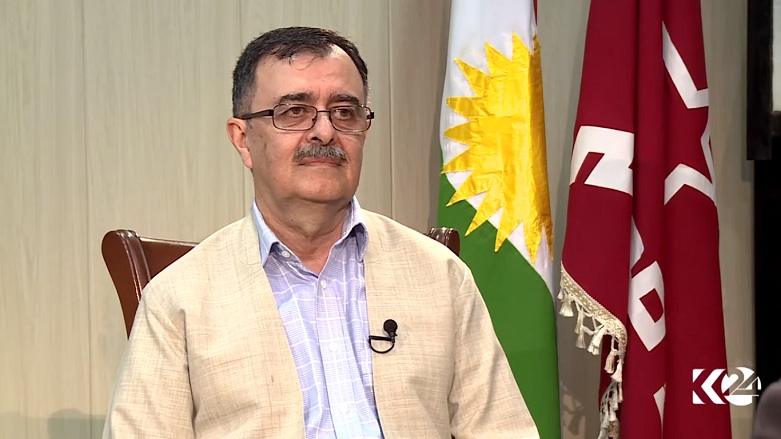Iran nuclear deal causes internal conflicts

ERBIL, Kurdistan Region (K24) – Abdullah Mohtadi, Secretary General of Komala Party of the Iranian Kurdistan, stated on Tuesday that after the nuclear deal between Iran and the Western powers, internal conflicts may arise.
Komala is a Kurdish left-wing opposition party based in Iranian Kurdistan (Rojhelat) and the Kurdistan Region of Iraq. The party engaged in an armed struggle with the Iranian regime after Ayatollah Khomeini, the Iranian revolutionary leader, declared a jihad on Kurds in 1979.
The landmark nuclear deal between Iran and the P5+1 group of world powers (US, UK, France, China and Russia and Germany) lifted sanctions on Iran. Analysts believe the agreement is an ideological contradiction to what the Islamic Republic of Iran is based on -- a holy regime against Western Imperialism. The Islamic Republic believers are disappointed and question the regime.
In an exclusive interview with K24, Mohtadi mentioned that currently the primary conflicts in the Middle East are Syria, the Islamic State (IS), and the fight against terrorism.
Mohtadi commented on the impact of the Kurdish opposition parties in Iran. He stated that Iranian regime is a “totalitarian dictatorship” that rubs political parties of their political freedom. He continued, “Political parties [in Iran] are prevented from political activities, free elections have no meaning, independent media does not exist, and freedom of speech is banned.”
Mohtadi argued that the opposition’s influence could only be observed in people’s occasional demonstrations against the regime under such suppressive environment. He stressed, “The role of the [Kurdish] opposition [parties] in Iran has been very meaningful in this regard.”
The Kurdish dissident stressed that the nuclear deal and lifting the economic sanctions would improve Iran’s diplomatic relations with the west. However, he emphasised that Iran would face more problems in its internal affairs.
Speaking about Kurdistan achieving independence, Mohtadi said, “I believe it will happen, maybe not in a few months, but I expect in a few years.” He emphasized that Kurds must keep friendly relationships with the neighboring countries.
“But I believe it is a big mistake for the Kurds to be part of Iran-Russia alliance…Kurds must make allies with the West while keeping a friendly relationship with other countries [in the region],” added Mohtadi.
“Our values are closer to the Western world,” Mohtadi remarked. He claimed that Obama’s administration foreign policy has not been effective in the Middle East; however, he reaffirmed that this must not “push us” to make allies with a different side.
